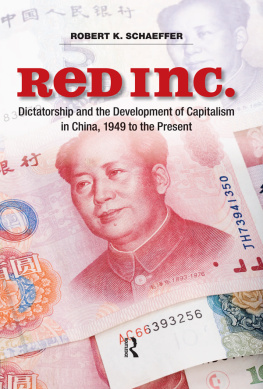Robert K. Schaeffer - After Globalization
Here you can read online Robert K. Schaeffer - After Globalization full text of the book (entire story) in english for free. Download pdf and epub, get meaning, cover and reviews about this ebook. year: 2021, publisher: Routledge, genre: Politics. Description of the work, (preface) as well as reviews are available. Best literature library LitArk.com created for fans of good reading and offers a wide selection of genres:
Romance novel
Science fiction
Adventure
Detective
Science
History
Home and family
Prose
Art
Politics
Computer
Non-fiction
Religion
Business
Children
Humor
Choose a favorite category and find really read worthwhile books. Enjoy immersion in the world of imagination, feel the emotions of the characters or learn something new for yourself, make an fascinating discovery.

- Book:After Globalization
- Author:
- Publisher:Routledge
- Genre:
- Year:2021
- Rating:3 / 5
- Favourites:Add to favourites
- Your mark:
- 60
- 1
- 2
- 3
- 4
- 5
After Globalization: summary, description and annotation
We offer to read an annotation, description, summary or preface (depends on what the author of the book "After Globalization" wrote himself). If you haven't found the necessary information about the book — write in the comments, we will try to find it.
After Globalization — read online for free the complete book (whole text) full work
Below is the text of the book, divided by pages. System saving the place of the last page read, allows you to conveniently read the book "After Globalization" online for free, without having to search again every time where you left off. Put a bookmark, and you can go to the page where you finished reading at any time.
Font size:
Interval:
Bookmark:


by Routledge
605 Third Avenue, New York, NY 10158
2 Park Square, Milton Park, Abingdon, Oxon, OX14 4RN
Names: Schaeffer, Robert K., author.
Title: After globalization: crisis and disintegration / Robert K.
Schaeffer.
Description: New York, NY: Routledge, 2021. | Includes
bibliographical references.
Identifiers: LCCN 2021011237 | ISBN 9781032056104
(hardback) | ISBN 9781032056098 (paperback) | ISBN
9781003198321 (ebook)
Subjects: LCSH: GlobalizationEconomic aspectsHistory. |
International tradeHistory. | International financeHistory. |
Financial crisesHistory. | RecessionsHistory. | Economic
history1945- | United StatesEconomic conditions1945
Classification: LCC HF1365 .S33 2021 | DDC 337dc23
LC record available at https://lccn.loc.gov/2021011237
by Apex CoVantage, LLC
- 2 Jumpstarting Wall Street
- 3 Wall Street and Stock-Price Inflation
- 4 Mergers and Downsizing
- 5 De-Unionizing, Outsourcing, and Deindustrialization
- 6 Technology and Job Loss
- 7 Economic Inequalities
- 8 Globalization and Crises
- 9 Globalization and China
- 10 Housing and the Great Recession
- 11 The Economic Costs of the Great Recession
- 12 The Political Consequences of the Crisis
- 13 Uncoupling and De-Globalization
- 14 Marginalization and Disintegration
Font size:
Interval:
Bookmark:
Similar books «After Globalization»
Look at similar books to After Globalization. We have selected literature similar in name and meaning in the hope of providing readers with more options to find new, interesting, not yet read works.
Discussion, reviews of the book After Globalization and just readers' own opinions. Leave your comments, write what you think about the work, its meaning or the main characters. Specify what exactly you liked and what you didn't like, and why you think so.










